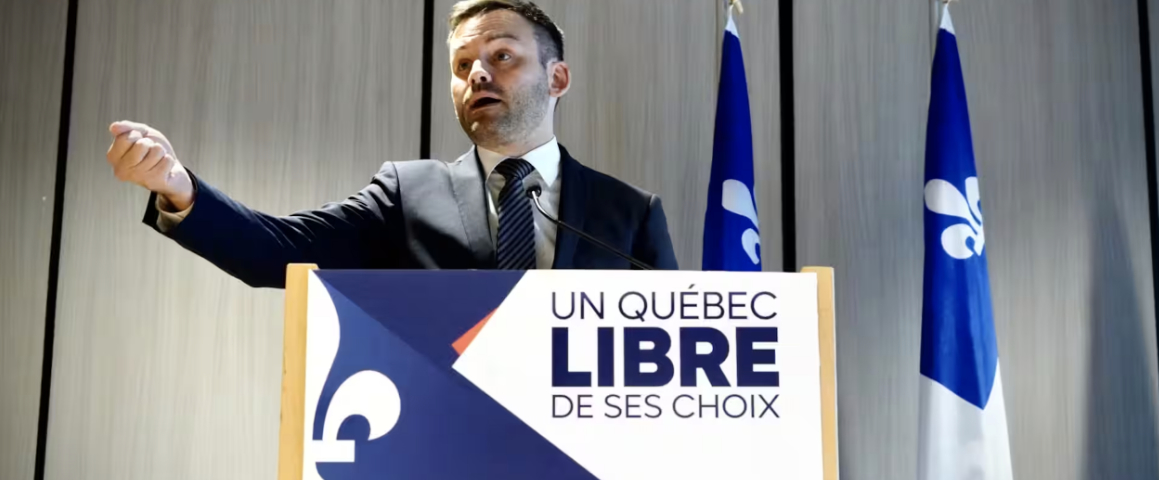By Adrien Welsh
In 2018, following the election of the Coalition Avenir Québec (CAQ) and trouncing of the Parti québécois (PQ), many Anglo-Canadian political commentators wishfully predicted the resolution of the national question and the end of Quebec’s independence movement. Their predictions were confirmed after the 2022 Quebec election, which returned the CAQ and reduced the PQ to just three seats.
But now, it is Paul Saint-Pierre-Plamondon’s Parti québécois that is leading the polls. The party has dusted off its independence credentials and is playing that card for all it is worth, reviving many of its traditional campaign proposals including the publication of a “Year Zero Budget” last autumn.
It isn’t just the PQ’s actions which indicate that the issue of independence has returned to centre stage in the political arena. Québec solidaire (QS) has until now relied mainly on votes from the left-leaning Liberal electorate, but recently launched its “Nouveau Québec” campaign. With this campaign, QS is suggesting – perniciously – that Quebec independence is a necessary condition for implementing the social programs demanded by the labour and people’s movements.
At the other end of the political spectrum, former federal immigration minister and deposed mayor of Montreal Denis Coderre has waded in with his anti-independence “Non merci!” campaign, which cleverly references the federalist slogan from the 1980 referendum. Coderre is jousting for leadership of the Liberal Party of Quebec, which no longer enjoys any significant support among Quebec’s French-speaking population, although he has not yet officially announced his entry into the race.
This all suggests that the national question, believed to have been resolved or at least sidestepped in Quebec, is making a comeback. But it begs the question of the extent to which enthusiasm for Quebec independence has fluctuated in recent years.
According to the several polls, support for independence has averaged around 34.8 percent since 2016. This includes the two most recent surveys, which showed 41 percent support in January and 35 percent in February.
Clearly, the national question has never ceased to be a preoccupation in Quebec politics. And while corporate monopolies and the CAQ had hoped to submerge it into a form of narrow, identity-based nationalism long enough to impose their political agenda, it is coming back at a gallop. The Legault government seems to have been caught off-guard.
Two things are certain. First, the CAQ will have to get to grips with this issue – even though the party’s entire approach has been based on avoiding it at all costs – or risk losing all political credibility. Second, it’s no coincidence that the question of independence has moved to the centre of Quebec’s political debate during a time of crisis an upsurge in working-class fightback, as illustrated by the labour struggles last fall. After all, what could be better than manipulating the national question to strip it of all class content and anaesthetize the growing social struggles which have the potential to break with monopoly power?
Support socialist media!
If you found this article useful, please consider donating to People’s Voice or purchasing a subscription so that you get every issue of Canada’s leading socialist publication delivered to your door or inbox!
For over 100 years, we have been 100% reader-supported, with no corporate or government funding.




